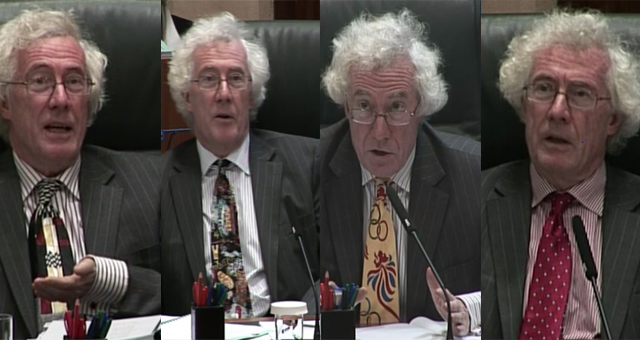With thanks to Legal Cheek for the photo https://www.legalcheek.com/
Once a judge, always a judge? Why do retired judges feel the need to opine on the law?
Joshua Rozenberg highlights the point this week in his intelligent Substack blog, generously titled ‘Top Judge Corrects Media’, with the sub-title ‘International court did not decide that claim of genocide in Gaza was plausible.’ I say ‘generously titled’, as another heading could well have been: ‘Retired Supreme Court Judges get it badly wrong, misunderstand the law and mislead us.’
In an open letter to the Prime Minister accusing the UK of failing to meet its obligations under the Genocide Convention, hundreds of lawyers, including former President of the UK Supreme Court, Lady Hale, and her retired Supreme Court Justice colleague Lord Sumption, asserted that the International Court of Justice had on 26 January 2024 “concluded that there was a plausible risk of genocide in Gaza”.
Evident from the court’s judgment, at no point did the International Court of Justice make such a finding of ‘plausible risk’, nor indeed – given its procedural function at that point – would it likely have done so.
Matters however got worse on Wednesday 24 April when Lord Sumption gave evidence to the Commons Business and Trade Committee. Undeterred by published criticism of his assertion he stuck by his original and demonstrably flawed opinion. Rozenburg reports that it took Natasha Hausdorff, barrister and international law specialist to correct his error.
Stephen Sackur’s BBC HARDtalk interview on 25 April with Joan Donoghue, recently retired President of the International Court of Justice and presiding judge at the time of the decision, clarified the issue once and for all. She explained that the court had decided a procedural issue that the Palestinians had a ‘plausible right to be protected from genocide’. She went on to emphasise that the court made no evidential evaluation of risk of genocide: ‘it didn’t decide that the claim of genocide was plausible.’
In other words, the letter to the UK Government misrepresented the court’s decision, and the signatories to it were wrong.
This highlights the problem of old judges giving their opinions on the law. Not, I hasten to add in relation to Ms Donoghue who simply clarified the court’s position. It was our own retired judges that had opined seemingly unwisely, incorrectly and misleadingly.
Our current UK Supreme Court Judges have a pivotal role in upholding our legal system and preserving the nation’s constitutional integrity. At a time when we question the European Court’s jurisdiction over UK decisions, it is especially important that the Supreme Court retains unimpeached credibility.
Justices currently sitting in the Supreme Court have considerable advantages: support from a body of researchers, reading and understanding precedent in the knowledge that they must justify departure from it; but more significantly, they have each other – a pool of experienced, functional judicial minds crossing generations of lawyers.
As lawyers themselves, retired judges should understand that legal life has a cycle. We start our career by asking questions, then with experience progress to giving advice, and later as judges, we make the decisions. But retirement from judicial office requires a new path, perhaps one where they should stop judging and advising, and return to asking questions?
Advertisements appearing within and below this post are placed by the platform not the writer. They are neither endorsed nor monetarised.
*
*
*
*
